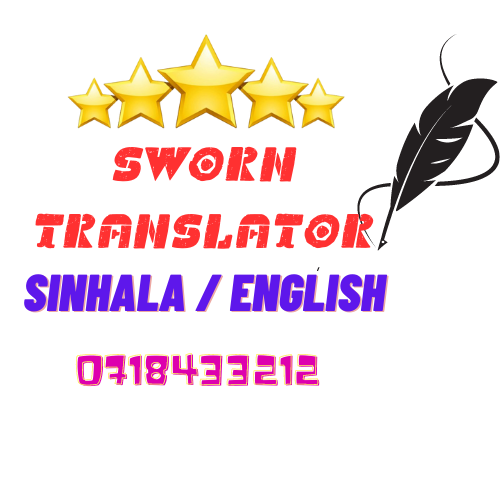Welcome to our blog post on translations and writing! If you’ve ever been curious about the world of translations or are interested in enhancing your writing skills, you’ve come to the right place. In this post, we will explore the fascinating world of translations, its importance in today’s global society, and how it intersects with the art of writing. Whether you’re new to the concept or a seasoned writer, we hope you find this post informative and engaging. So let’s dive in!
Breaking Down Language Barriers
Language is a beautiful tool that embodies culture, history, and identity. However, it can also create barriers, hindering effective communication and understanding. This is where translations step in. Translations play a crucial role in breaking down language barriers and enabling meaningful connections across different cultures and nations.
Imagine a world where we could only communicate with those who speak the same language as us. It would limit our understanding of diverse perspectives and stifle collaboration. Translations open doors to new ideas, facilitate global business, and foster cross-cultural exchange. Through translations, we can bridge the gaps between people, regardless of their language or geographical location.
Cultural Preservation
Language and culture are intrinsically linked. Translations not only allow us to understand different languages but also help preserve cultural heritage. Literature, historical texts, and folklore are often passed down through generations in their original language. By translating these works, we ensure their longevity and make them accessible to a wider audience, thus preserving and celebrating diverse cultures.
Professional Translations
Translations are not limited to literature and cultural works alone; they also play a vital role in various professional domains. In an increasingly globalized world, businesses often rely on accurate translations to communicate with clients, partners, and customers in different countries. From legal documents and marketing materials to technical manuals and medical reports, professional translations are essential for effective communication and successful global operations.
The Art of Writing: Enhancing Your Skills
Writing is a powerful form of expression. Whether you’re crafting a gripping story, crafting a persuasive essay, or creating compelling content, writing allows you to communicate your thoughts and ideas with others. Here are some tips on how to enhance your writing skills:
Read Widely
One of the best ways to improve your writing skills is to read widely. Explore different genres, authors, and styles. Reading exposes you to various writing techniques, expands your vocabulary, and helps you develop a keen sense of storytelling. As you immerse yourself in different writing styles, you’ll find inspiration and gain valuable insights that you can apply to your own writing.
Practice Regularly
The key to becoming a better writer is practice. Set aside dedicated time each day to write, even if it’s just for a few minutes. Whether you keep a journal, write short stories, or start a blog, regular writing practice will help you refine your skills, develop your unique voice, and build confidence in your abilities. Don’t be afraid to experiment and try new writing styles or genres – this will help you grow as a writer.
Seek Feedback
Sharing your writing with others and seeking feedback is an invaluable part of the writing process. Join writing groups, connect with fellow writers, or seek guidance from mentors or editors. Constructive criticism can help you identify areas for improvement, discover blind spots, and refine your work. Embrace feedback as a means of growth and continually strive to enhance your writing based on the insights you receive.
Translating for Flow and Accuracy
Translating is a delicate art that requires a deep understanding of both the source and target languages. Translators must not only accurately convey the meaning of the original text but also ensure that it flows naturally in the target language. Achieving this balance between accuracy and linguistic fluency can be a challenge, as languages often differ in structure, idiomatic expressions, and cultural nuances. A skilled translator must possess a strong command of both languages to effectively bridge these gaps.
The Importance of Context
A crucial aspect of translation is understanding the context in which the text is written. Context guides the translator in making appropriate choices that faithfully capture the intended meaning. For example, a humorous anecdote may need to be adapted to resonate with the target audience, while maintaining the essence of the original joke. Similarly, cultural references may need explanation or adaptation to ensure they are understandable to readers from different backgrounds.
Use of Translation Tools
Advancements in technology have revolutionized the world of translations. Translation tools and software assist in speeding up the process while maintaining accuracy. These tools often use machine learning algorithms and powerful databases to suggest translations, providing a helpful starting point for human translators. However, it’s important to note that while technology can aid in efficiency, the human touch is still crucial. Contextual understanding, cultural nuances, and creativity are elements that machines cannot fully replicate.
Conclusion
Translations and writing are intertwined in their ability to transcend borders, capture cultural nuances, and foster understanding among diverse audiences. By embracing the art of translations, we can break down language barriers and create a global community that celebrates diversity. Additionally, honing our writing skills enables us to effectively communicate our thoughts and ideas, contributing to this global exchange of knowledge and culture.
Whether you’re a translator seeking to improve your craft or a writer looking to enhance your skills, remember that practice, reading widely, and seeking feedback are key pillars in your journey of growth. Embrace the power of translations and the art of writing, and together, let’s create a world where language is not a barrier but a bridge to greater connections.

